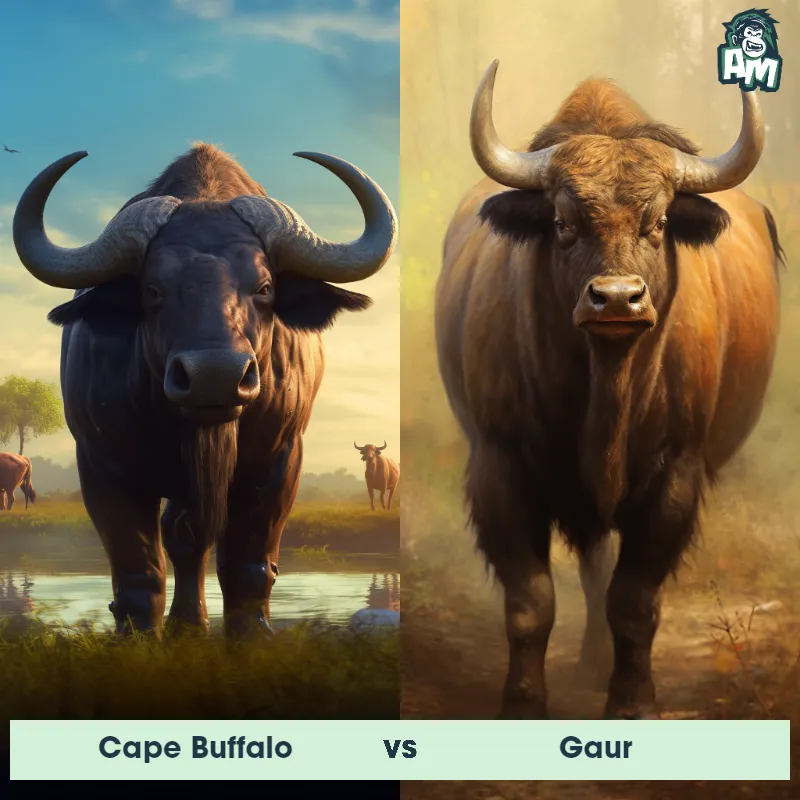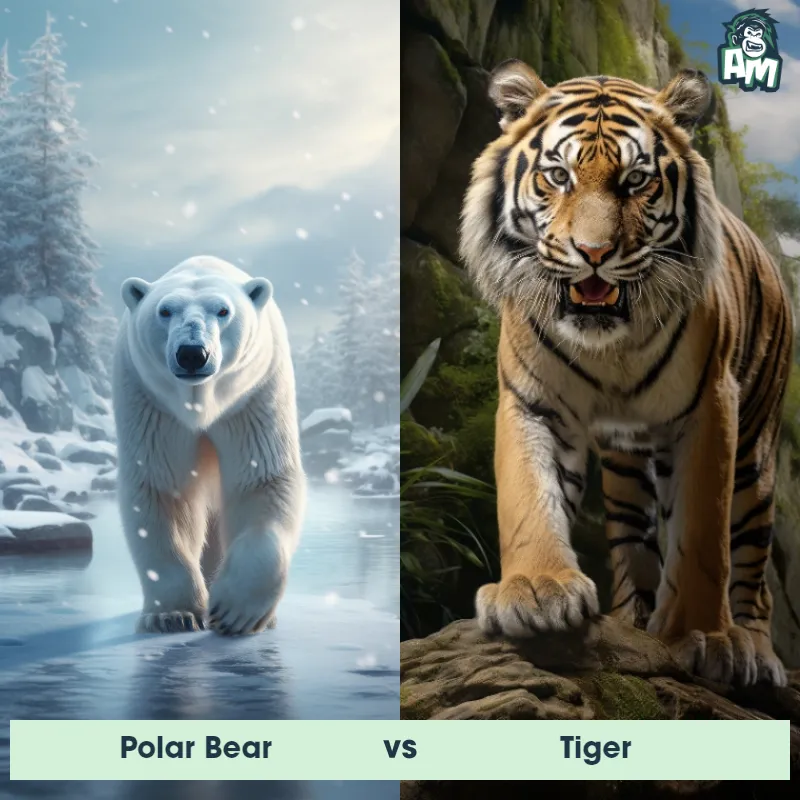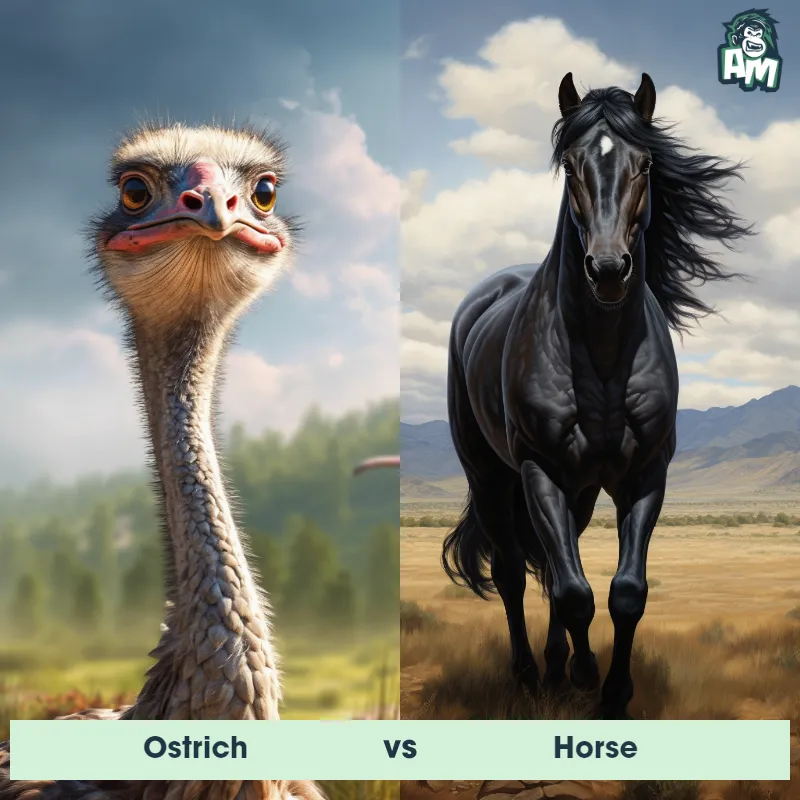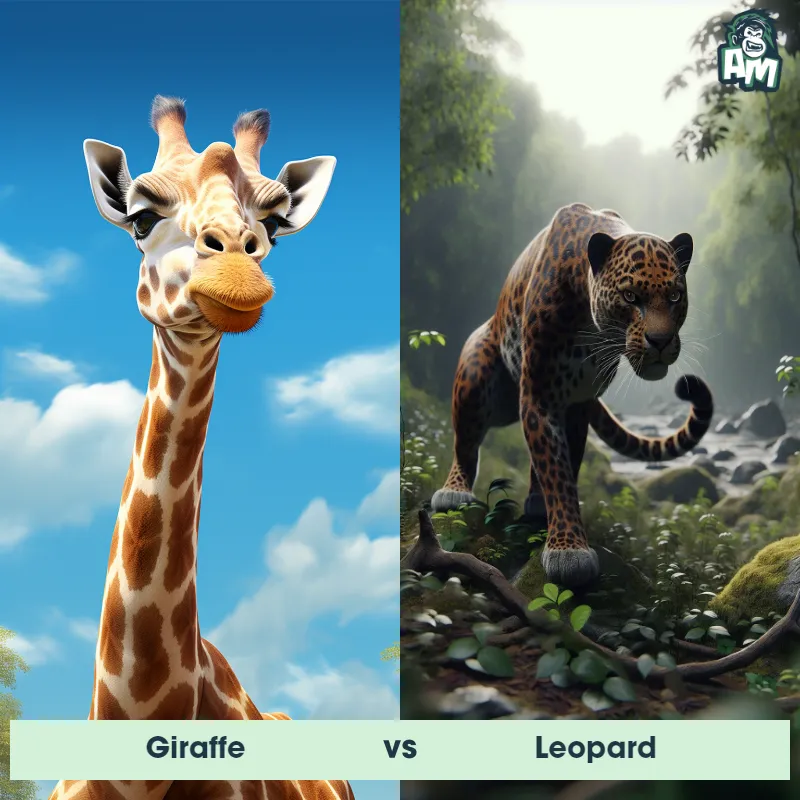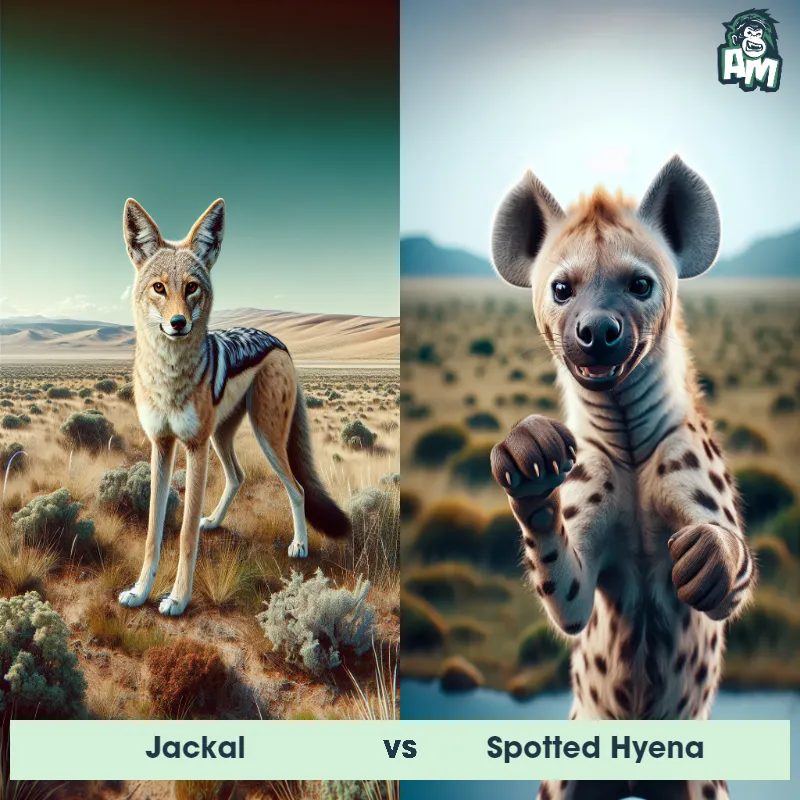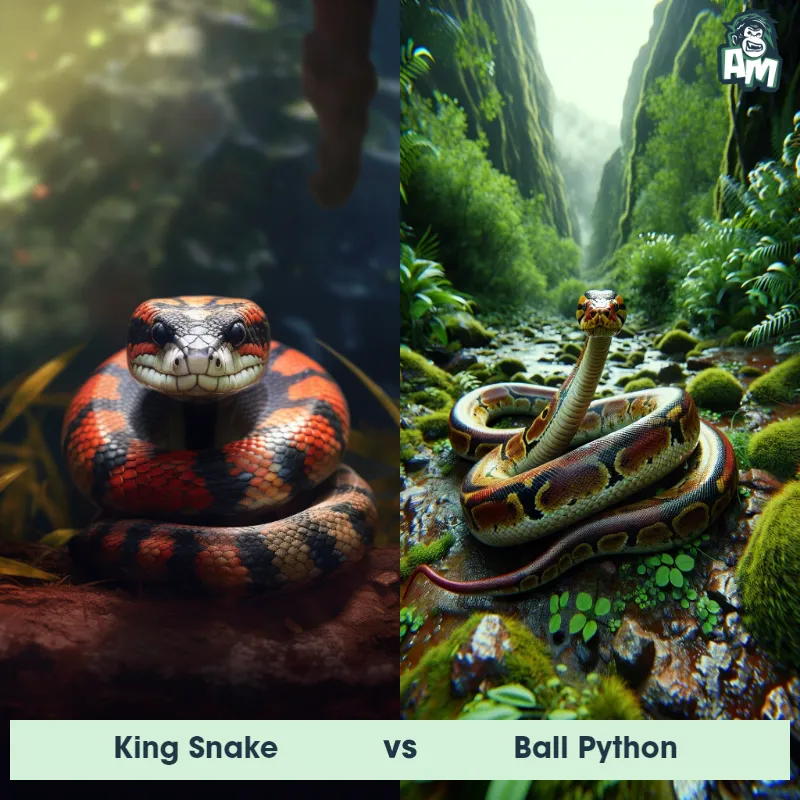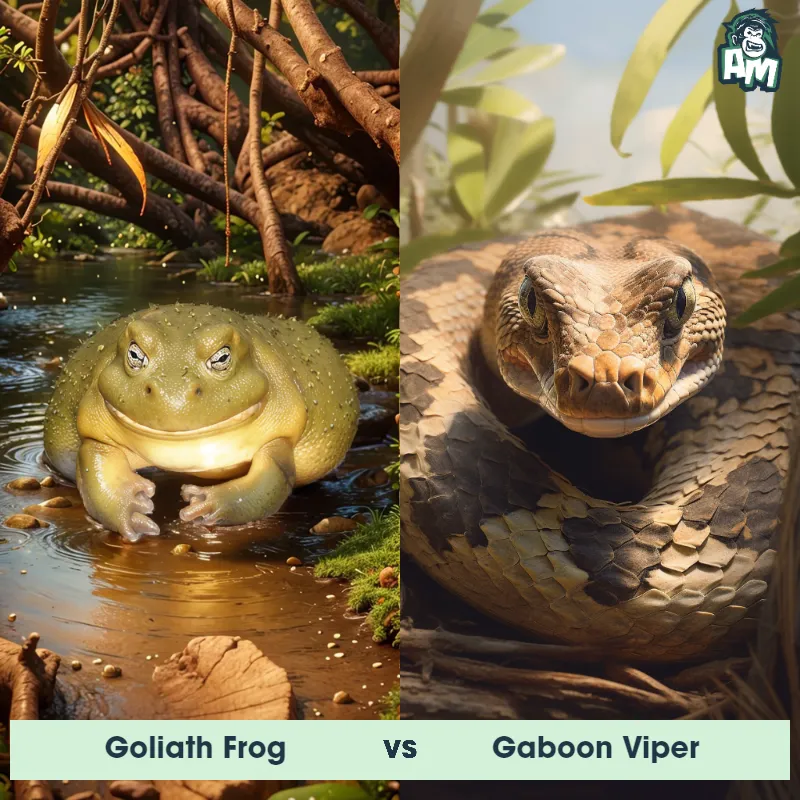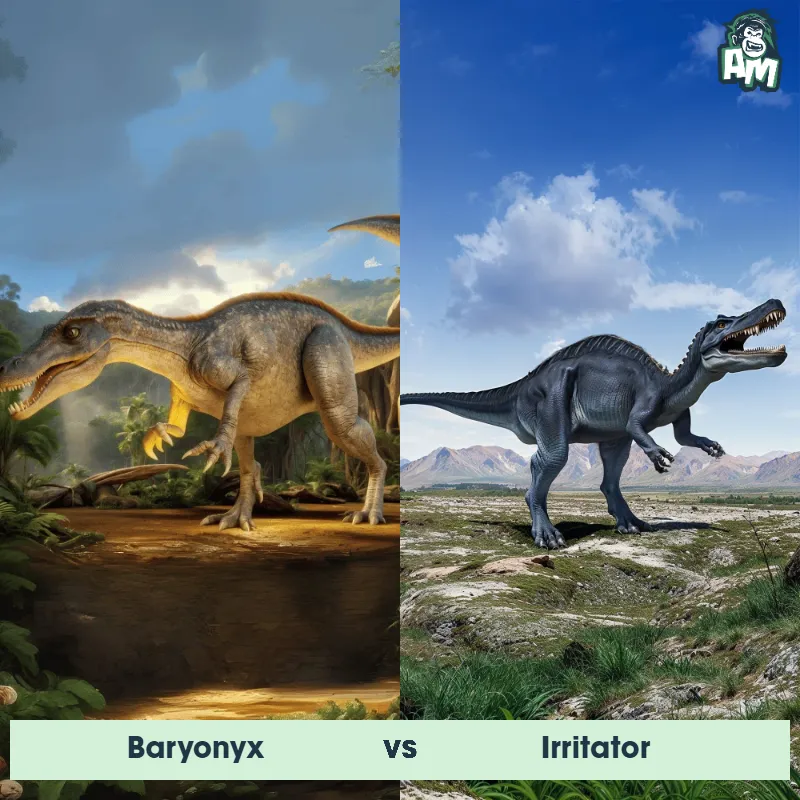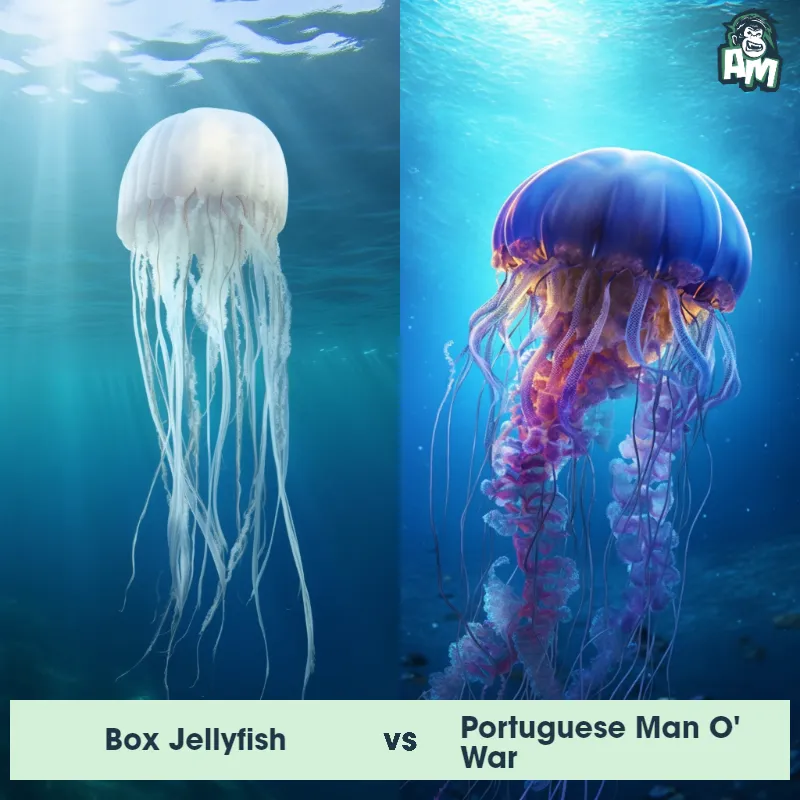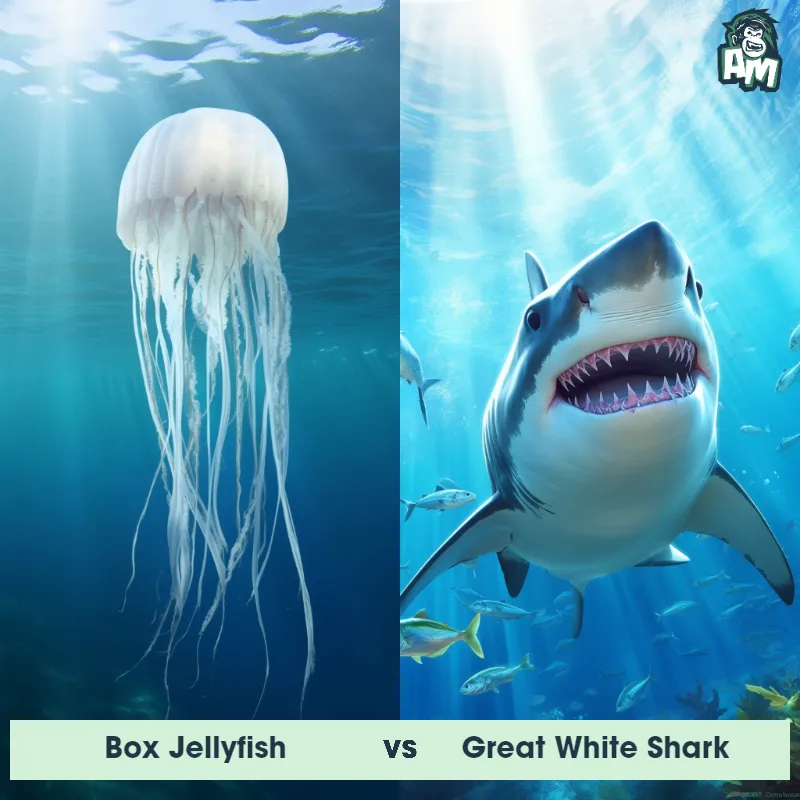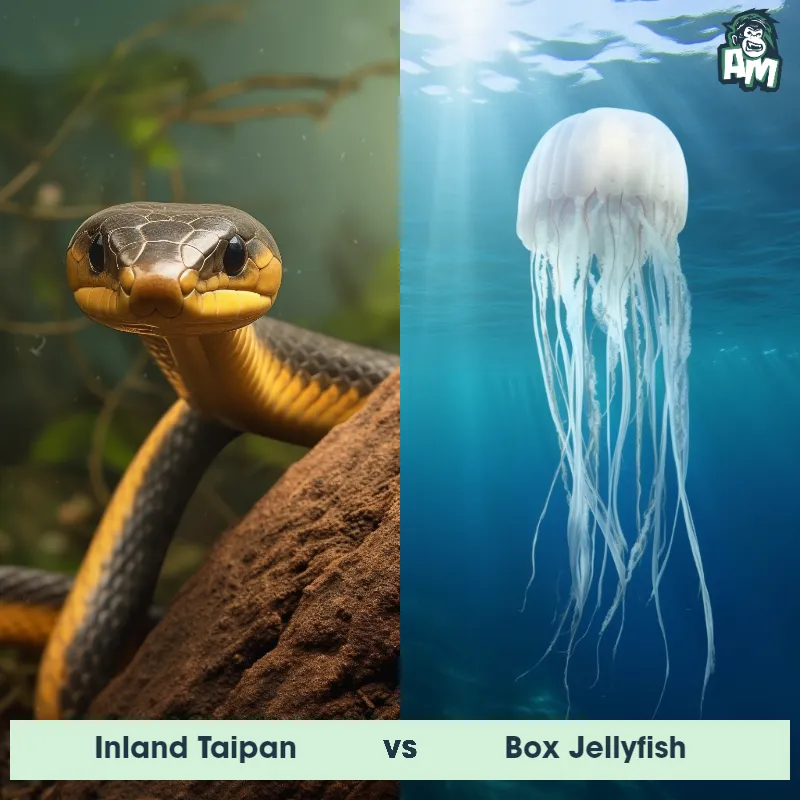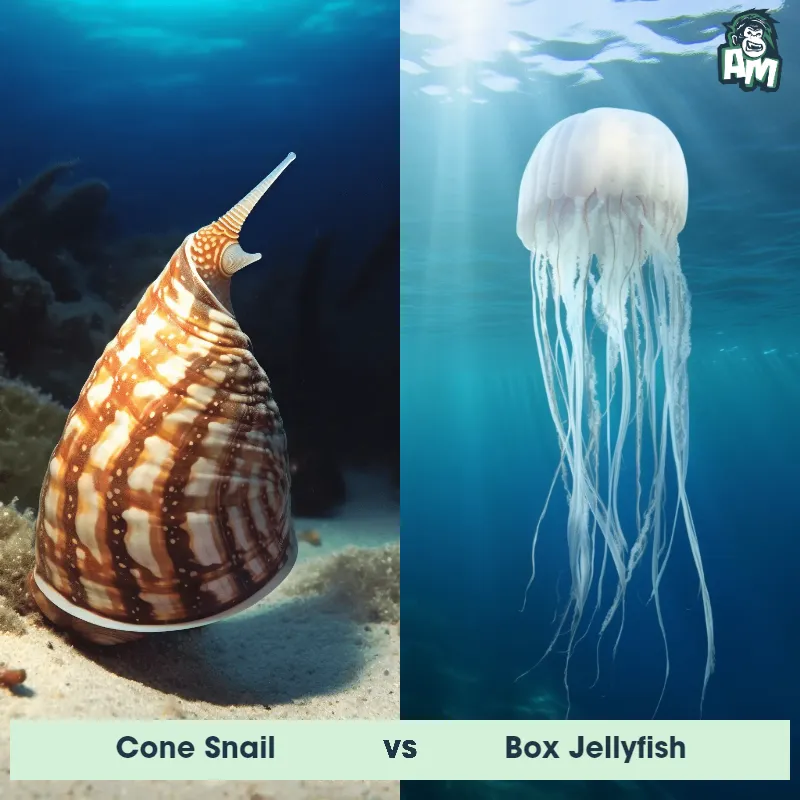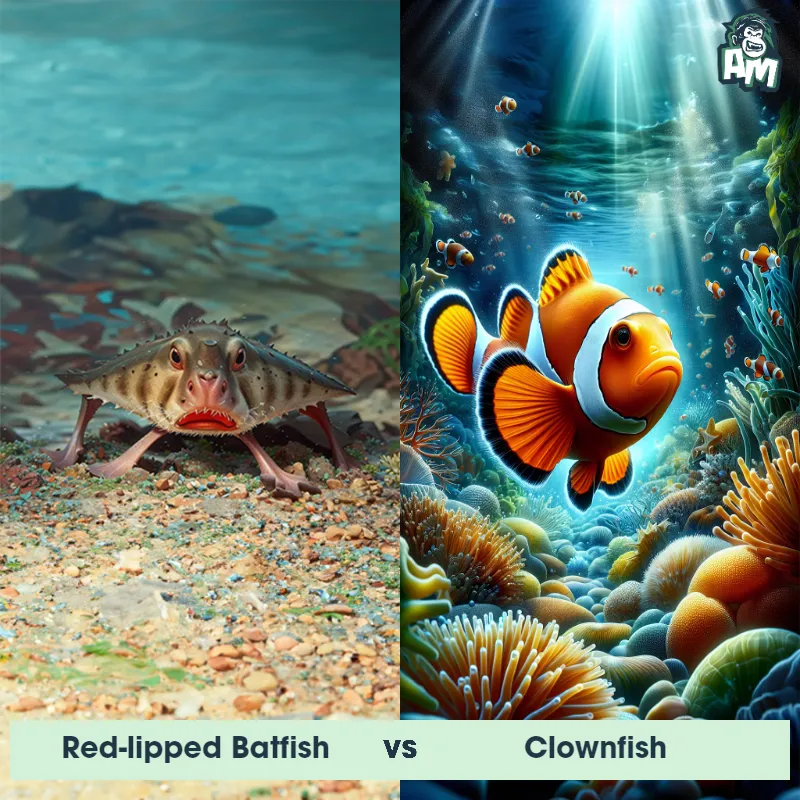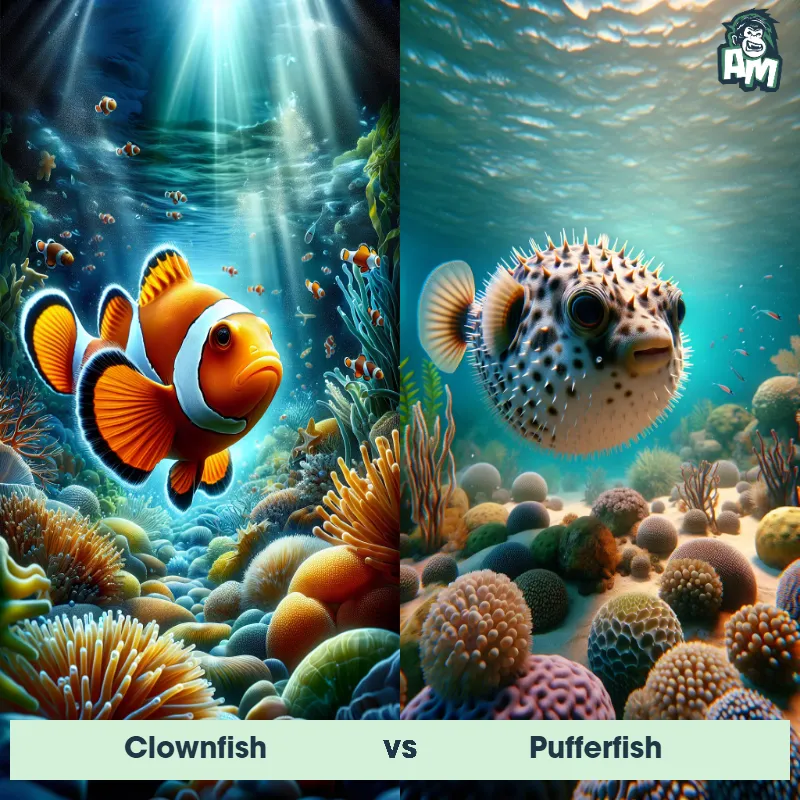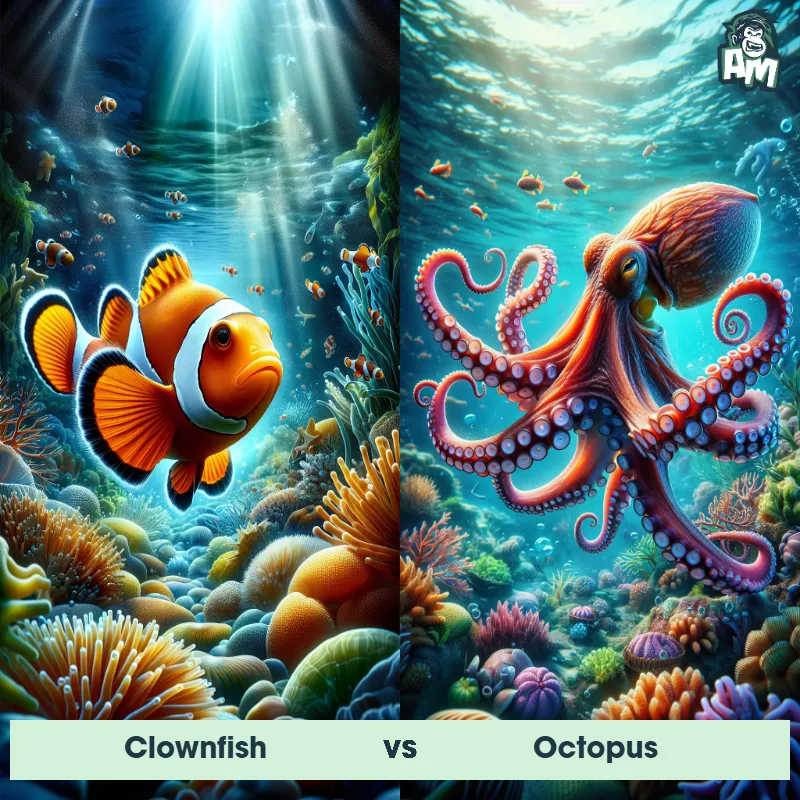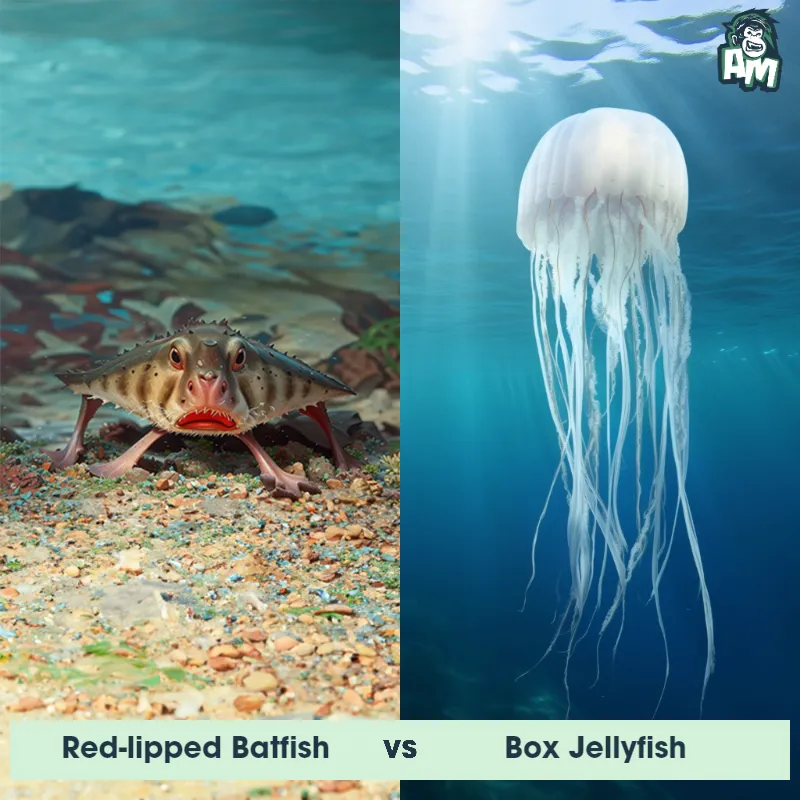Clownfish vs Box JellyfishSee Who Wins
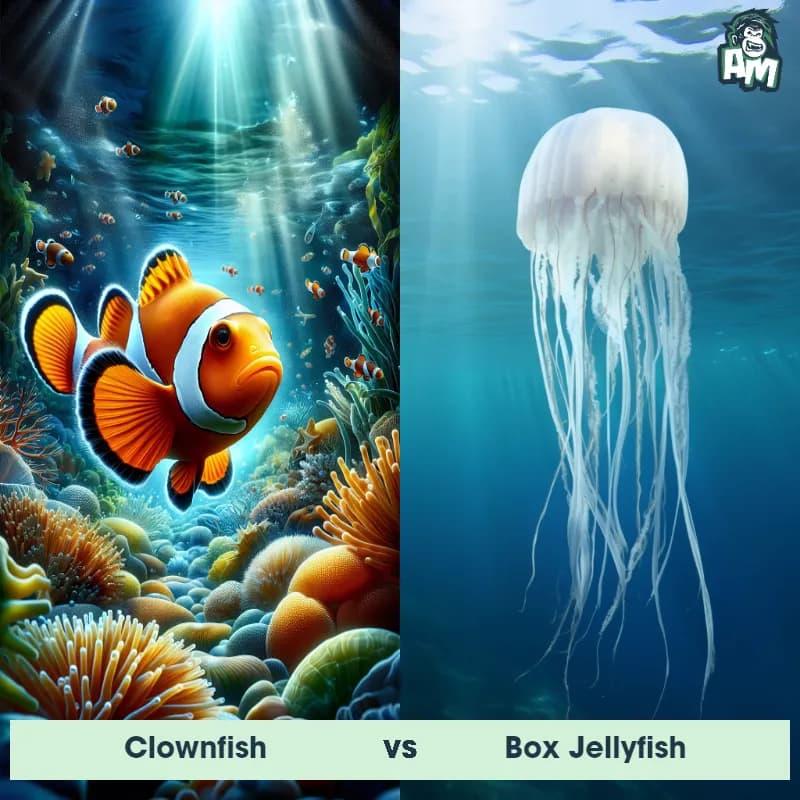
Ladies and gentlemen, welcome to this epic matchup between the Clownfish and the Box Jellyfish! It's a battle of speed and agility versus venomous tentacles. Who will come out on top in this underwater showdown?
Contender 1: Clownfish
Fun Fact:
Contender 2: Box Jellyfish
The Box Jellyfish, also known as the Sea Wasp, is a highly venomous marine animal found in the waters of the Pacific and Indian Oceans. It has a cube-shaped bell with up to 15 tentacles that can grow up to 10 feet long, each lined with thousands of stinging cells called nematocysts. Its transparent body makes it difficult to spot in the water, and its venom can cause heart failure and death in humans within minutes of contact.
Fun Fact: The Box Jellyfish has 24 eyes, grouped into four clusters called rhopalia, which can detect light, color, and movement, making it one of the few jellyfish species with a complex visual system.
Matchup Stats
| Clownfish | Box Jellyfish | |
|---|---|---|
| Size | 2 to 5 inches (5 to 13 cm) | Up to 10 feet (3 meters) |
| Weight | Varies, but typically less than 1 pound (less than 0.5 kg) | Up to 4.4 pounds (2 kilograms) |
| Speed | 1.5mph (2.41km/h) | Speed: 4 mph (6.4 km/hr) |
| Key Strength | Agile swimmers and good at defending their territory | Venomous tentacles |
| Biggest Weakness | Relatively small size and lack of physical aggression | Not an aggressive predator |
Current Votes
Clownfish vs Box Jellyfish
See Who Wins
View More Matches
Looking For More?
Similar Matches
Scientific Stats
| Clownfish | Box Jellyfish | |
|---|---|---|
| Scientific Name | Amphiprioninae | Chironex fleckeri |
| Family | Pomacentridae | Chirodropidae |
| Habitat | Coral reefs, lagoons | Marine |
| Geography | Indo-Pacific region | Pacific and Indian Oceans |
| Diet | Omnivorous, eats small crustaceans, algae, and plankton | Small fish, shrimp, and other jellyfish |
| Lifespan | 7 years - 10 years | few hours - few months |
Key Differences between Clownfish and Box Jellyfish
- Behavior: Clownfish are territorial and form symbiotic relationships with sea anemones for protection, while Box Jellyfish are highly venomous and use their tentacles for capturing prey.
- Color: Clownfish are brightly colored with orange, white, and black stripes, while Box Jellyfish are translucent with a pale blue or yellow tint.
- Appendages: Clownfish have smooth fins and no tentacles, while Box Jellyfish have long, thin tentacles covered in stinging cells called nematocysts.
- Size: Clownfish are typically small, reaching lengths of 2-5 inches, while Box Jellyfish can grow much larger, with tentacles reaching up to 10 feet in length.
- Habitat: Clownfish are found in coral reefs and shallow waters, often hiding among sea anemones, while Box Jellyfish prefer open water and can inhabit coastal waters or deep sea environments.
- Shape: Clownfish have a more streamlined and torpedo-like shape, whereas Box Jellyfish have a bell-shaped body with tentacles hanging down.



